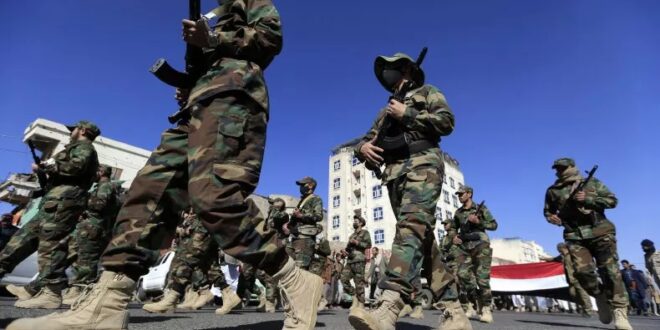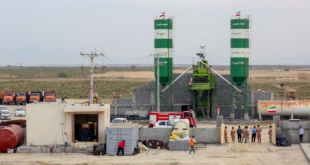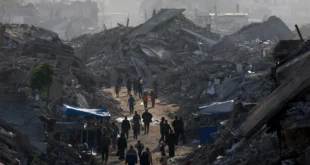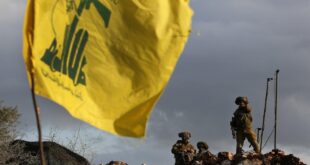A source within the Yemeni faction of the Iran-led Axis of Resistance coalition at war with Israel over its conflict in Gaza has told Newsweek the group would intensify attacks after suffering a new series of Israeli air raids.
Hours after the reporting the interception of a missile launched from Yemen, the Israel Defense Forces (IDF) announced late Wednesday that its warplanes “struck military targets” belonging to Ansar Allah, also known as the Houthi movement, on Yemen’s west coast and inland territory over 1,000 miles away.
The operation, according to the Israeli military, served to “degrade the Houthi terrorist regime, preventing it from exploiting the targets for military and terrorist purposes, including the smuggling of Iranian weapons to the region.”
IDF spokesperson Rear Admiral Daniel Hagari elaborated that the targets included “ports and energy infrastructure” in the capital city of Sanaa.
Amid scenes of destruction, an Ansar Allah source told Newsweek that the latest Israeli operation involved “attacks on civilian sites” and “will not affect the continuation of Yemen’s operations in support of Gaza.”
Rather, the Ansar Allah source said, the attacks “will push us and all the Yemeni people to a greater conviction of the necessity of continuing the confrontation with the Zionist enemy entity and that it really represents a danger to Yemen and to various Arab and Islamic countries.”
“We will continue to strike into the depths of the Zionists, and we will not accept that Israel continues to target civilians without deterrence or punishment,” they said. “We will punish Israel without stopping until it stops, God willing.”
Ansar Allah, which has consistently denied receiving direct military aid from Iran, commenced a campaign of missile and drone attacks against Israel shortly after the Palestinian militant group Hamas launched a surprise attack on Israel on October 7, 2023. The attack killed 1,200 Israelis and saw hundreds others taken hostage. Over 45,000 Palestinians have been killed in Gaza amid Israel’s subsequent campaign, according to the Associated Press, citing the Gaza Health Ministry.
The Yemeni group went on to expand its operations to include striking commercial vessels accused of doing business with Israel.
Since then, Ansar Allah has launched hundreds of operations targeting Israel and international ships deemed in violation of the group’s unilateral maritime blockade of Israel. Hagari said the latest operation forced “millions of civilians to take cover in bomb shelters.”
Ansar Allah military spokesperson Yahya Saree said early Thursday that the group struck “sensitive military sites” near Tel Aviv using two missiles known as “Palestine 2,” which he touted to have hypersonic capabilities.
Saree said that “the operation was carried out simultaneously with the Israeli aggression on civilian facilities in the capital Sanaa and the Hodeidah Governorate, including power stations,” and constituted a “natural and legitimate response” to Israeli attacks.
After initially announcing a successful downing of an incoming projectile, the IDF determined Thursday that debris following a “partial interception” led to an explosion causing damage at two schools in the city of Ramat Gan, located in the district of Tel Aviv.
The same “Palestine II” missile was said by the group to have been launched Sunday in another strike that the IDF had said it intercepted just hours after announcing the downing of a drone launched from Yemen. Another Ansar Allah drone strike earlier this month caused damage at an apartment complex in the central Israeli city of Yavne.
“They are not attacking just us – they are attacking the entire world,” Israeli Prime Minister Benjamin Netanyahu said in a statement Thursday. “They are attacking the international shipping and commercial lanes.”
“Thus, when Israel takes action against the Houthis, it is acting on behalf of the entire international community. The Americans understand this very well, as do many others.
He referred to Ansar Allah as “almost the last arm of Iran’s axis of evil” following setbacks suffered by Hamas, the Lebanese Hezbollah movement and the Syrian government.
Hamas and Hezbollah have lost scores of fighters and senior commanders, including their top leaders, throughout the 14-month war that has spread across the Middle East. Hezbollah and Israel signed a 60-day ceasefire agreement on November 27, the same day a coalition of Syrian rebels launched a large-scale offensive that ultimately toppled President Bashar al-Assad’s regime in a dramatic turn of the nation’s 13-year civil war.
Yemen’s own civil war has been on effective hold since a United Nations ceasefire was established in April 2022. Ansar Allah remains in control of Sanaa, the major port city of Hodeidah and other northern cities, constituting up to 80 percent of the country’s population. The Saudi-backed and internationally recognized government is today based in the southern port city of Aden.
Iran, which has also denied supplying Ansar Allah with weapons, condemned the Israeli strikes against Ansar Allah.
Iranian Foreign Ministry spokesperson Esmail Baghaei referred to the IDF’s attack in Yemen as “a flagrant violation of the principles and standards of international law and the United Nations Charter,” arguing that “the crimes of the Zionist regime are carried out in the shadow of the unconditional support of the United States, and Washington is a partner in the lawlessness and crimes of the criminal gang ruling Tel Aviv,” according to a statement published Thursday.
“The international community and the Islamic world have a legal and moral responsibility to stop the aggression of the Zionist regime and to prosecute and punish this regime for committing all the crimes stated in the Statute of the International Criminal Court,” Baghaei said, “especially the crime of aggression and war crimes.”
The United States has also conducted airstrikes against Ansar Allah since the group entered the multifront battle against Israel.
U.S. Central Command (CENTCOM) announced Monday that it had “conducted a precision airstrike against a key command and control facility operated by Iran-backed Houthis within Houthi-controlled territory” in Sanaa.
“The targeted facility was a hub for coordinating Houthi operations, such as attacks against U.S. Navy warships and merchant vessels in the Southern Red Sea and Gulf of Aden,” CENTCOM said at the time. “The strike reflects CENTCOM’s ongoing commitment to protect U.S. and coalition personnel, regional partners, and international shipping.”
While Ansar Allah has directly tied its campaign to the ongoing war in Gaza, where long-deadlocked ceasefire talks recently appeared to see progress, U.S. Secretary of State Antony Blinken expressed Wednesday his “concern” that “even when we get to the point where the conflict in Gaza is over, the war in Gaza is over, they may well continue because they’ve put themselves on the world stage.”
Like Netanyahu, he compared the Ansar Allah’s situation to that of Hamas, Hezbollah and the former Syrian government, warning the group “can’t count on their patrons to continue to support them and, if necessary, come to the rescue if they get in trouble.”
“I think the Houthis have to make this calculation,” Blinken said during an event hosted by the Council on Foreign Relations. “Can they really count on the ongoing support? Are they going to be out there alone?”
“And some of what we’re seeing now suggests that they may be looking to move in a different direction,” he added, “because I don’t think they want to be in a direct conflict with us, and if they keep doing what they’re doing, they’re going to have a problem.”
 Eurasia Press & News
Eurasia Press & News




